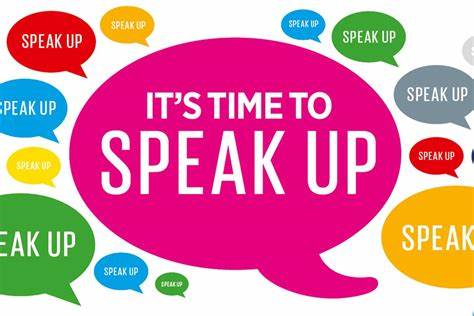The Importance of Reporting Bullying: Breaking the Silence

Speak Up – Reporting is the right thing to do
The Importance of Reporting Bullying: Breaking the Silence Bullying is a serious problem that can have lasting negative effects on its victims. It is important to report bullying so that it can be stopped and so that the victim can get the help they need. There are many reasons why people do not report bullying. Some people are afraid of retaliation from the bully or their friends. Others may be embarrassed or ashamed to admit that they are being bullied.
Still others may not know how to report bullying or who to report it to. It is important to overcome these barriers and report bullying whenever it occurs. Reporting bullying can help to stop the bullying, protect the victim, and prevent future bullying from occurring. Here are some of the benefits of reporting bullying: * It can help to stop the bullying. When bullying is reported, the school or other authorities can take steps to stop the bullying and protect the victim.
This may involve talking to the bully, providing counseling or other support to the victim, or even suspending or expelling the bully from school. It can protect the victim. Reporting bullying can help to protect the victim from further harm. The school or other authorities can take steps to ensure that the victim is safe and that the bullying does not continue. *
It can prevent future bullying from occurring. Reporting bullying can help to prevent future bullying from occurring by sending a message that bullying will not be tolerated. It can also help to create a more positive and supportive school climate. If you are being bullied, it is important to report it to a trusted adult. This could be a parent, teacher, counselor, or another adult you trust. They can help you to stop the bullying and support you through this difficult time.
You can also report bullying to the school administration or to the police. Here are some tips for reporting bullying: Be specific. When you report bullying, be sure to provide as much detail as possible about the bullying, including who is involved, what happened, when and where it happened, and any witnesses. Be honest. It is important to be honest about what happened, even if it is embarrassing or difficult to talk about. Be brave. Reporting bullying can be scary, but it is important to be brave and stand up for yourself. Get help.
If you are being bullied, it is important to get help from a trusted adult. They can help you to stop the bullying and support you through this difficult time. Remember, you are not alone. There are many people who care about you and want to help you stop the bullying. Please reach out to a trusted adult for help.
When a student speaks up about bullying to an adult, several positive outcomes can occur:
- Validation and Support: The student feels validated and supported by the adult, knowing that their concerns are taken seriously. This can boost the student’s confidence and self-esteem.
- Investigation and Intervention: The adult can investigate the bullying incident and take appropriate action to stop it. This may involve talking to the bully, involving parents or guardians, or implementing school disciplinary measures.
- Increased Awareness: By reporting bullying, the student helps raise awareness of the issue within the school or community. This can lead to increased efforts to prevent and address bullying.
- Improved School Climate: When bullying is addressed and prevented, the overall school climate improves. Students feel safer and more respected, which can lead to better academic performance and social well-being.
- Empowerment: Speaking up about bullying empowers the student and sends a message that bullying is not acceptable. It encourages other students to come forward and report bullying incidents.
However, it is important to note that speaking up about bullying can also have some potential risks:
- Retaliation: In some cases, the bully or their associates may retaliate against the student for reporting the incident. It is crucial for adults to take steps to protect the student from any potential harm.
- Social Stigma: In some peer groups, there may be a stigma associated with being a “snitch” or “tattletale.” Adults should help the student understand that reporting bullying is the right thing to do and should not be seen as a sign of weakness.
Overall, the benefits of speaking up about bullying to an adult far outweigh the potential risks. By providing support, investigating incidents, and creating a safe and respectful school environment, adults can empower students to stand up to bullying and create a more positive and inclusive school community.

